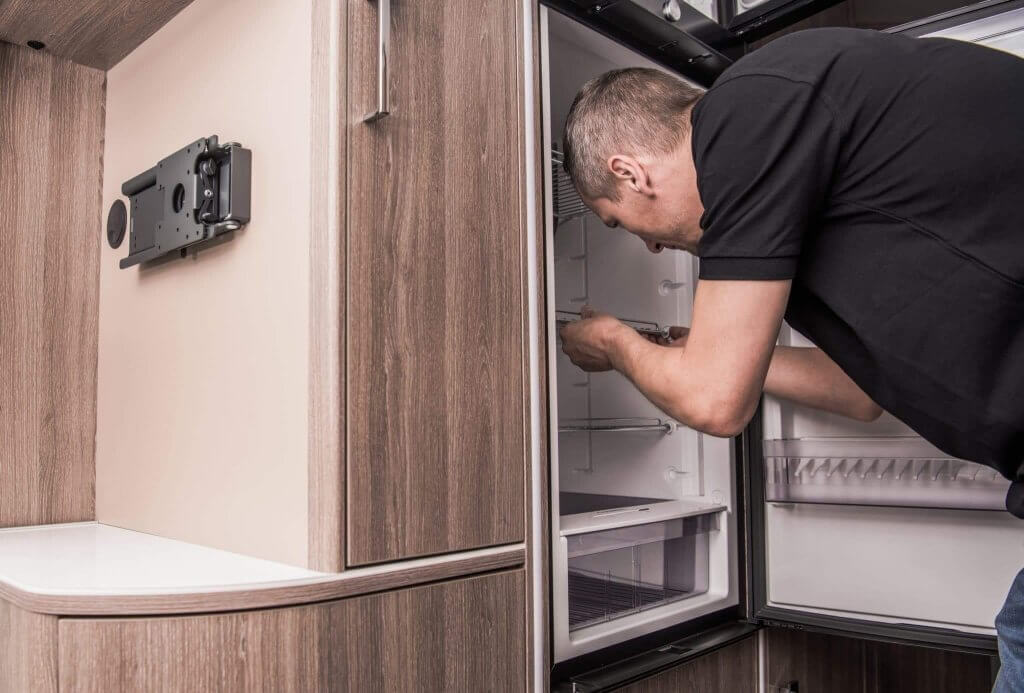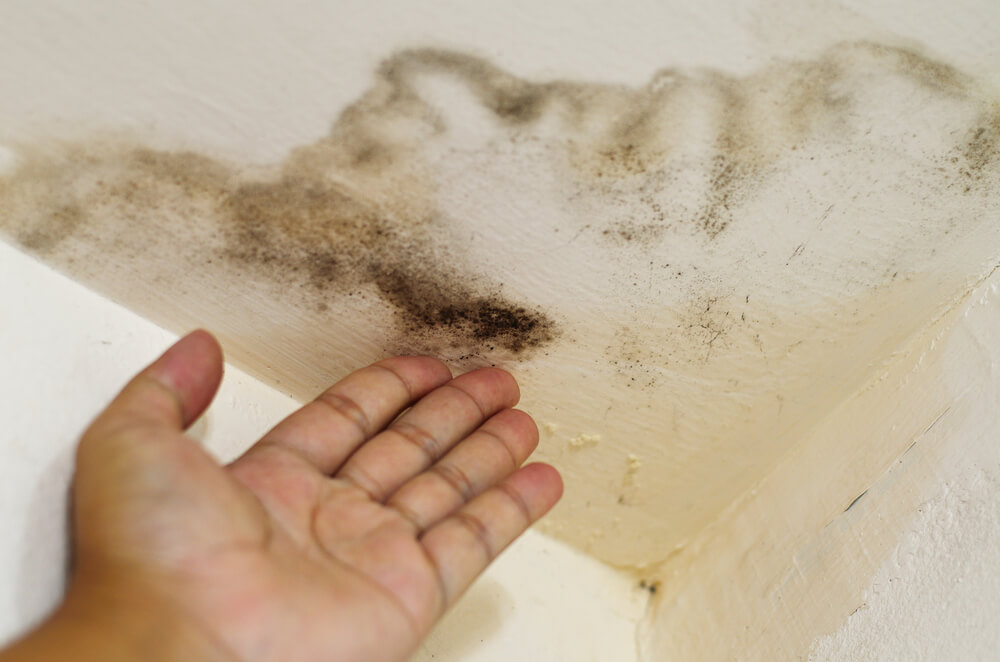One of the essential components of your RV is the refrigerator. It is a true pleasure to have cold meals on the road, but it also differentiates camping from motorhome travel. You want to be able to preserve food, maintain its freshness, and eat it for many days.
If anything goes wrong with your RV refrigerator, you must know how to repair it yourself. We will discuss typical issues and their solutions.
Taking a few basic measures can frequently prevent the need for costly RV refrigerator repair. It will improve its odds of staying in good working order and avoiding expensive maintenance.
RV refrigerator repairs are occasionally necessary even if you keep your fridge in immaculate condition due to normal wear and use and accidents. Some fixes may be within your capabilities, and here’s a blog that tells you about the probable problems and their solutions.
How Does the RV Refrigerator Function, Exactly?
Let’s start with the basics and figure out how your RV fridge functions. In recreational vehicles, you’ll often find refrigerators from one of two manufacturers: Norcold RV refrigerators and Domestic RV refrigerators.
There are some noticeable changes between the fridge in your home versus the one in your RV. Dual-fuel absorption refrigerators are the norm in RV vehicles or camper kitchens. The compressor and freon in an absorption refrigerator are unnecessary.
The cooling unit utilizes propane or electricity to warm water, ammonia, and hydrogen. This causes an evaporative effect and cools the fridge by drawing heat out.

Can You Do Your RV Refrigerator Repair Yourself?
Absolutely! Keep going if your RV refrigerator is giving you trouble. If you’re having problems with your RV fridge and can’t figure out the problem, don’t worry; a repairman is just a phone call away. Before you give up and ask for help, check out these RV refrigerator repair techniques and learn how to keep your fridge functioning properly.
How to Do an RV Refrigerator Repair
The Air Is Thick With Ammonia
If you turn on your RV vehicle and detect an ammonia door, the problem is most likely with the evaporator. Close the door and turn off the refrigerator right away. Improve airflow and eliminate the smell by opening the RV’s windows, doors, and vents. DIY RV refrigerator repair skills are not required for this task. When your RV’s cooling system stops working, only a professional can fix it.
The RV Refrigerator Is Propane-Powered but Not 110-Volt Compatible.
There’s an electrical problem if the refrigerator can run on propane but not regular electricity. First, see if the circuit breaker has tripped. Next, look in the RV’s circuit box for a tripped breaker. If a circuit breaker has tripped, try resetting it. Even if you reset a tripped breaker, your refrigerator may still be unable to operate on 110V electricity, indicating a more serious electrical problem. This is when you should call a professional RV refrigerator repair.
RV’s 110-Volt Refrigerator Is Not Working When Switched to Propane.
Let’s say your fridge is operational while connected to 110V but not when using propane. Most of the time, you must clean up the area. If propane is not getting to the burner, the problem is likely due to obstruction. Clearing away a clog in the pipe or the burner itself is necessary if the flame at the burner is weak or nonexistent. Use caution around the gas and electrical components if cleaning the burner unit with a shop vac.
Difficulties with the Electricity
After making sure there is no apparent damage, such as a blown a fuse or a tripped circuit breaker, it is time to bring in the experts. Working with electricity might be dangerous if you are not experienced with it. Don’t put yourself in danger if you’re unsure about the situation.
What to Do If Your AC Is Frozen
Frozen condensers should be an unusual event at best. Most often, this will happen if you store your RV somewhere cold for an extended time, such as during the winter. If your RV gets stuck somewhere cold and the cooling unit on the back of the fridge freezes, you can slowly warm the back with a space heater or a high-wattage bulb until the cooling unit thaws. If you’re using LP gas (propane), switch it off until the thawing process is complete, and don’t place the heat source too close to any wires.
Fixing a Leaking Refrigerator
A blocked drain, a faulty drain line, or a damaged drip pan may cause water at the base of your RV refrigerator. A drip pan under the fins catches and drains moisture. Broken drain pans may be replaced or patched. However, even though the drain pan seems okay, a hose or fitting may be disconnected or missing.

If they are fine, the drain line may be clogged. Most RVs include an external panel to access the refrigerator. The drain line’s terminal stopper commonly blocks. To restore water flow, remove and clean the clog. After removing the obstruction, you may use a pipe cleaner on the outlet pipe.
The best solution to a leaky AC is a new AC. Like we said before, a leaking cooling unit is likely to blame if you smell ammonia or see yellow stains from your RV fridge. The more experienced DIYers among us may be able to tackle this RV refrigerator repair, but they should proceed with caution. Your focus should be on the cooling unit, which houses the actual cooling solution (a combination of water, ammonia, and hydrogen). Once again, if you feel uneasy about doing so, it’s best to bring in an expert for the RV refrigerator repair.
What to Do if You Observe a Buildup of Ammonia Sediment?
Ammonia sediment buildup might occur in your RV fridge if you haven’t used it in a while. If you suspect ammonia sediment buildup in your refrigerator, there is one thing you may do to attempt to extend the life of your refrigerator. Cut the power. It would help if you took it out of the RV.
Try inverting it. Keep it like that for at least two days hoping the silt would move away from the air conditioner. You may put off replacing them for a while, but eventually, you’ll have to. The best step to prevent RV refrigerator repair is to prevent the RV fridge from sitting idle for long enough to experience this problem.
Please Maintain a Level of RV Vehicle
Your RV fridge will only cool properly if kept fairly level. Incorrect slope prevents ammonia liquid from flowing to the evaporator coils. Your RV’s refrigerator will only stay cold if it’s level and may even break.
Power Up Your Home’s Batteries Regularly
Remember to check the status of your home’s batteries often. Most refrigerators’ electrical components in RVs require electricity from house batteries. So even if your fridge runs on propane, the burner that lights the gas will still require 12V electricity.
Tips for Keeping Your RV Refrigerator in Top Condition
While cleaning the fridge in a conventional house and an RV are quite similar tasks, there are a few distinctions. Maintenance of this item regularly will help you avoid costly RV refrigerator repairs down the road.
A Quick Cleanup of the RV Fridge
Internal cleaning only requires some soapy water and some manual labor. Do this more often in your RV fridge because its contents travel more than in a fixed dwelling. If you have a dual-fuel RV fridge powered by either LP gas (propane) or 110V electricity, you should also wipe out the vents, the space beneath the refrigerator, and, most likely, the burner and flue. Most of it can be cleaned up with a shop vacuum.
Tips for Mold Abatement
Mix one cup of bleach with one gallon of water to kill RV fridge mold. Put it in a spray bottle and apply it to the mold. Wait a few minutes before wiping. Bleach water kills mold in 10–15 minutes. Vinegar can replace bleach for mold removal. Scrubbing harder than with bleach water may eliminate all mold. Alternatively, you may use baking soda and water paste. Cover the mold and let it dry. After that, you’ll have to scrape it off and wash it thoroughly.
Protecting Your Home From Mildew

One of the most remarkable ways to prevent mold or mildew growth in your RV fridge is to keep it clean. If you wish to take precautions against hidden germs, use a bleach-water solution or vinegar every other time before your usual cleaning.
Conclusion
In the end, we can say that maintaining a clean refrigerator and doing your best to keep your RV level can extend its life and reduce the likelihood of expensive RV refrigerator repairs. So do not give up on your fridge, even if it seems hopeless. Instead, it would be best if you had it checked out by a trained professional. Technicians truly on your side will lay you all your alternatives before proceeding.

